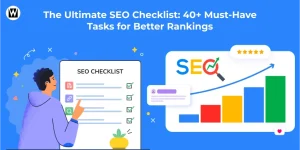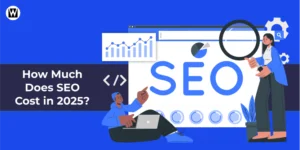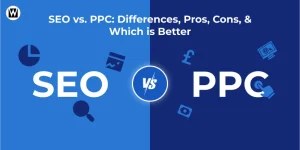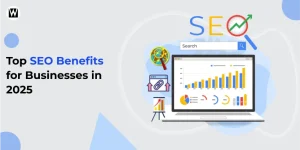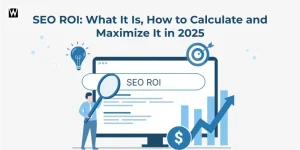SEO Trends That Should Be On Your Radar in 2025
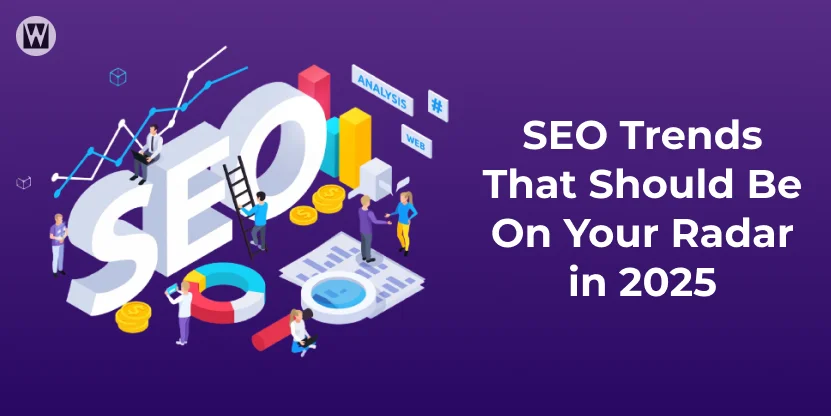
The SEO landscape has evolved dramatically over the past 15 years. In the early days, SEO was all about backlinks and broad website promotion—spanning every medium and advertising channel.
Fast forward to today, and the approach has expanded well beyond those foundational tactics. Modern SEO strategies now incorporate social media, content marketing, paid ads, artificial intelligence, and purpose-driven marketing that aligns with consumer values.
With mobile devices now driving more than half of consumer interactions and purchase decisions, optimizing content for mobile is non-negotiable. For marketers looking to stay ahead of the competition, understanding and adapting to the latest SEO trends is crucial. In this fast-paced digital environment, staying informed and agile will ensure your SEO strategy is not only effective but future-proof.
Top SEO Trends for 2025
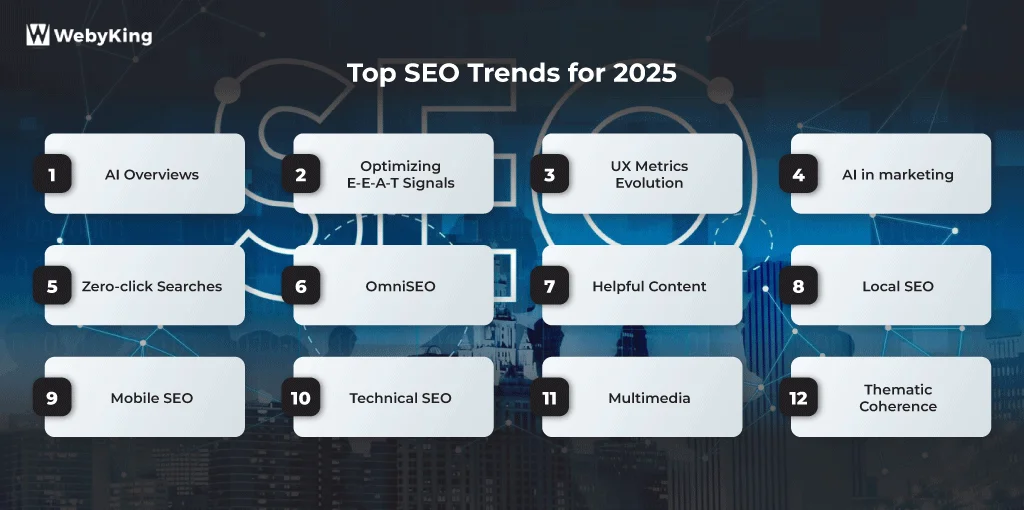
To identify the top SEO trends, we researched a range of marketing reports and studies across certain areas of marketing. Trends worth keeping in mind as you reevaluate your SEO strategies are:
1. AI Overviews -The Future of Search Engines
Imagine that your article is in the almost-final stages of completion, and an AI tool suggests keywords, tone, and an outline in keeping with search info on a real-time basis.
- Sounds unrealistic.
- Wouldn’t that be where SEO was headed in 2025?
Besides its other supportive roles, AI is now even more of an essential power in developing search algorithms. While Google’s BERT and RankBrain apply ML to understand the user’s context, this new AI is meant to provide more accurate results, be it user intent detection or trend prediction. Systems like ChatGPT or Jasper could help marketers be attentive to users to gain the insights they need or to create trends even quicker.
The year 2023 witnessed a 70% surge in the implementation of AI in keyword research, content generation, & on-page SEO optimization. However, people anticipate that by 2025, AI literacy will be the most important skill for marketers. AI tools must be focused on you, whether it is for personalizing content or predicting advanced searches.
The development of search engines only suggests that an SEO expert who becomes a pro in AI is the only one who could quickly develop content personalized to user needs without any hitch.
2. Optimizing E-E-A-T Signals: Building Trust Like Never Before
Heading towards the digital age, search engines are becoming increasingly aware that the information presented is credible and trustworthy; thus, they aim to ensure that the information people access is real.
Therefore, E-E-A-T (Experience, Expertise, Authoritativeness, and Trustworthiness) has become Google’s ranking criteria’ pivot point. Nowadays, your business should not think too much about stuffing the content with the appropriate keywords.
Instead, more concern should be on creating a brand vibe that convinces people you are an expert in the field. Just picture yourself looking for some health advice at Google, and the result is an article written by a doctor who has a certification in that field and has been in the practice for many years. Chances are you are likely to like that piece, are you not? That is the power of E-E-A-T.
Consider what happened to WebMD. As a top-rated site for health data dissemination, it makes its claim predominantly through E-E-A-T signals. Professional certifications back WebMD’s content that is authoritative enough, and this is what the users decide to spend time with. In 2025, more websites will need to walk in these footsteps.
For them, the expansion of a brand translates to the funding of high-quality content, the representation of experts, and the communication of the clear, fact-checked information that binds the relationship with individuals and the search systems. Something louder has been at the door for the world since E-E-A-T ceased to be a mere ranking factor and turned into a strategy of complete trust.
3. User Experience Metrics Continue to Evolve - A New Standard for Success
Rather than just a well-structured, keyword-stuffed page, the user will now look at the user experience (UX) as one of the main factors. Above all, search engines are continually improving how they evaluate user experience. Factors such as loading speed, mobile responsiveness, and even the duration visitors stay on your webpage increasingly become significant indicators of your ranking.
You could have unique content, but if it is buried under the slow-loading page or the complex navigation design, the users will jump out, and so will your rankings.
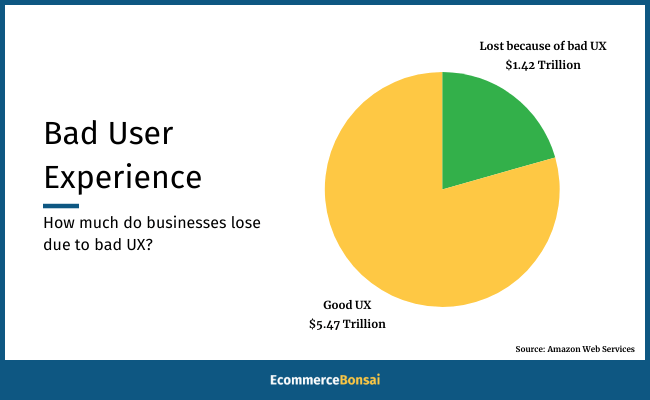
Source: Ecommerce Bonsai
Take an example of Airbnb’s playbook. The platform’s success is primarily attributed to appealing user experience – short loading time, no difficulty figuring out where to navigate, and quick search results. This directly equates to better user engagement, resulting in better search rankings.
In 2025, metrics on user experience will be broader than merely speed; they will also include issues of how helpful your site is and what it anticipates user needs. Therefore, marketers will need to work on their websites regularly, not only for SEO purposes but to enjoy the visitors and bring them back truly.
4. Marketers Should Become Super-users of AI Tools: The Key to Efficiency
The marketing world is evolving, and in 2025, staying ahead in the race will demand a deep understanding of AI tools. Consider how marketers today use AI for automation- like scheduling posts, analyzing customer behavior, or even generating ad copy.
By 2025, AI tools will be the Swiss army knife of marketing, helping teams generate creative content, automate SEO audits, and provide hyper-personalized user experiences. Just as early adopters of social media marketing gained a considerable advantage, those who master AI will lead the charge.
For example, HubSpot already uses AI to assist its users with content creation and lead scoring, enabling marketers to spend more time strategizing and less on repetitive tasks. By 2025, AI-driven platforms will be more innovative, integrated, and capable of handling everything from keyword research to competitor analysis. The secret to success will be how well marketers can leverage these tools to drive value, not just in terms of efficiency but also creativity and foresight.
Find Thousands of Relevant and Trending Topics with Us….
5. Zero-click Searches: “Instant Answer Era” Has Arrived
When you Google a query, the exact answer appears first without the need to follow links. Zero-click searches keep growing in popularity. Marketers must adapt their content for display in zero-click search results named featured snippets from 2025 onwards.
Our content must answer typical searches such as “What is Japan’s capital city?” or elaborate SEO queries such as “Which steps help boost search engine rankings.” People get used to getting fast answers through their voice search devices such as Siri or Google Assistant.
For instance, people want weather forecasts and nearby restaurants. Our queries deliver direct responses directly to users through the search results. The move from website clicks to direct answers presents difficulties and possibilities for digital marketing experts. Website owners must create brief, accurate content that directly answers user search queries to perform well in zero-click searches. In 2025, SEO strategies for featured snippets and knowledge panels alongside zero-click content options will become a priority.
6. OmniSEO: The Rise of Multi-channel Integration
In 2025, multi-platform marketing techniques will become essential for all search engine optimization plans. With OmniSEO, you can link different platforms, including websites, social media networks, voice search smartphone apps, and Internet of Things devices, into unified user experiences.
Your SEO strategy must be beyond website optimization to reach and enhance every touchpoint user experience with your brand. User engagement starts with discovering your brand on Instagram before researching your reviews on Google and completing the purchase through your app.
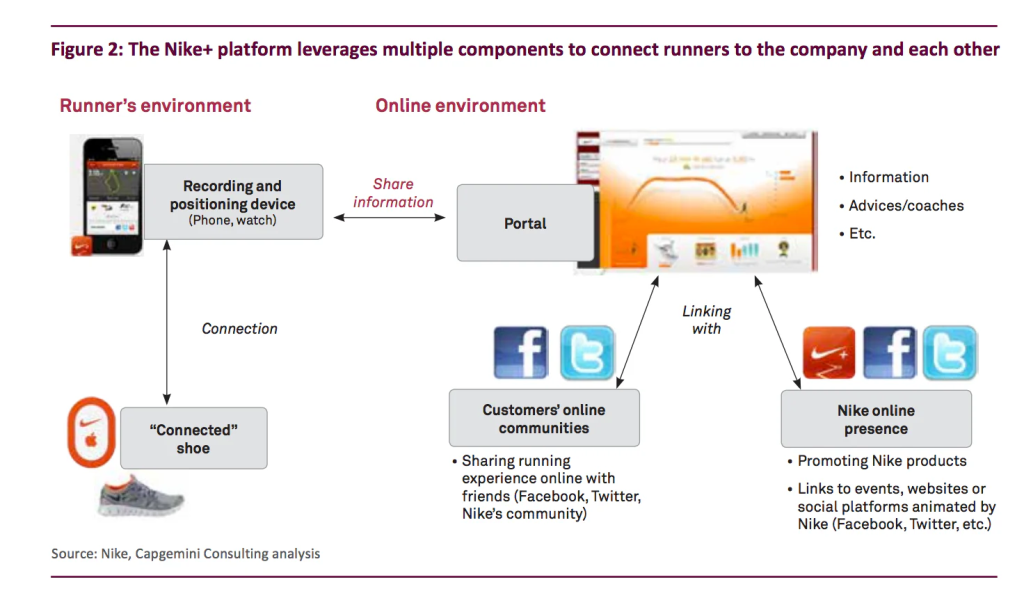
Source: Shopify
All touchpoints should work together naturally with a seamless user experience. For instance, Nike leads the pack by extending its SEO initiatives to all platforms where customers interact with the brand. By 2025, omnichannel SEO will be the norm. Companies must embrace new SEO strategies that enhance every touchpoint in their customer connection process.
Connecting all digital platforms gives users better ways to find your brand while improving your online presence.
7. User + Search Intent = Helpful Content: Bridging the Gap
User intent has been Google’s primary focus for many years and will transform SEO into its vital foundation in 2025. The fundamental reason users submit search queries falls into three categories: content-based demand, transaction-focused need, and navigation-driven requests.
When creating marketing materials, marketers need to write content that focuses specifically on searcher needs. The transition from standard blog posts or product descriptions will demand an understanding of user intent and the creation of helpful content that solves problems.
Amazon continuously designs its product pages to fit customer search needs. Every product listing is designed with specific user intent, from detailed descriptions and user reviews to related products.
The result? Not just a higher conversion rate but higher search rankings.Future success in rankings for 2025 depends entirely on understanding your audience and delivering content that answers their queries directly. Your content needs to fulfill user intention; otherwise, keyword optimization won’t help your SEO ranking.
8. SEO Localization: Reaching the Right Audience at the Right Time
Local SEO plays an important role, yet the increasing adoption of voice search technology alongside localized queries makes SEO localization essential for 2025. Brands must make local search optimization mandatory due to the growing use of smartphones and voice assistants for searching for new products and services nearby.
Business visibility in search results depends heavily on Google My Business profile optimization, local keyword implementation, and strategic local backlinks implementation for small business owners.
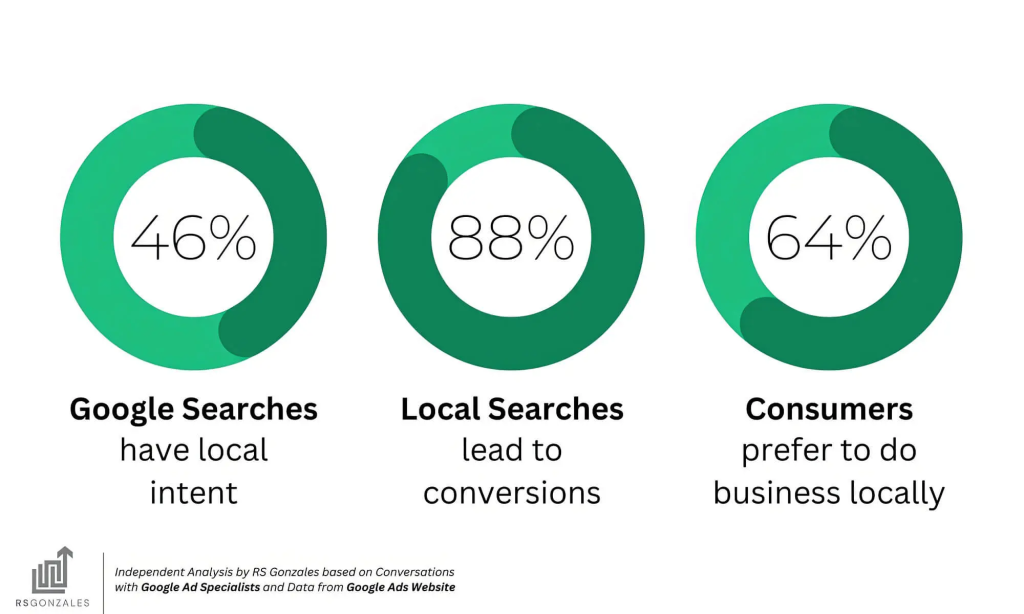
Source: Sitecentre
The popular coffee-chain brand Starbucks uses geo-graphic-specific SEO methods across their business location. A single franchise focuses its local SEO efforts on specific search expressions, including “best coffee near me” in one location and “vegan coffee options” in another geographical area.
Local search intent optimization allows businesses to satisfy their target audience during critical moments. Businesses operating with a hyper-localized SEO strategy in 2025 will effectively attract essential foot traffic alongside phone calls and online leads that are the lifeblood of small to medium enterprises.
Schedule a Call With One of Our SEO Experts
9. All SEO is Mobile SEO: The Mobile-first Future
Search engine optimization focusing on mobile accessibility will matter most to rankings in 2025 since mobile has already overtaken desktop usage. Google evaluates websites exclusively through their mobile versions when determining search engine rankings because of mobile-first indexing tactics.
A mobile-friendly website has transitioned from an option to an absolute necessity. You must fully optimize your website for mobile screens and boost speed performance combined with touch navigation features. The growing number of people relying on smartphone voice features require SEO strategies to adapt their tactics specifically for mobile user behavior.
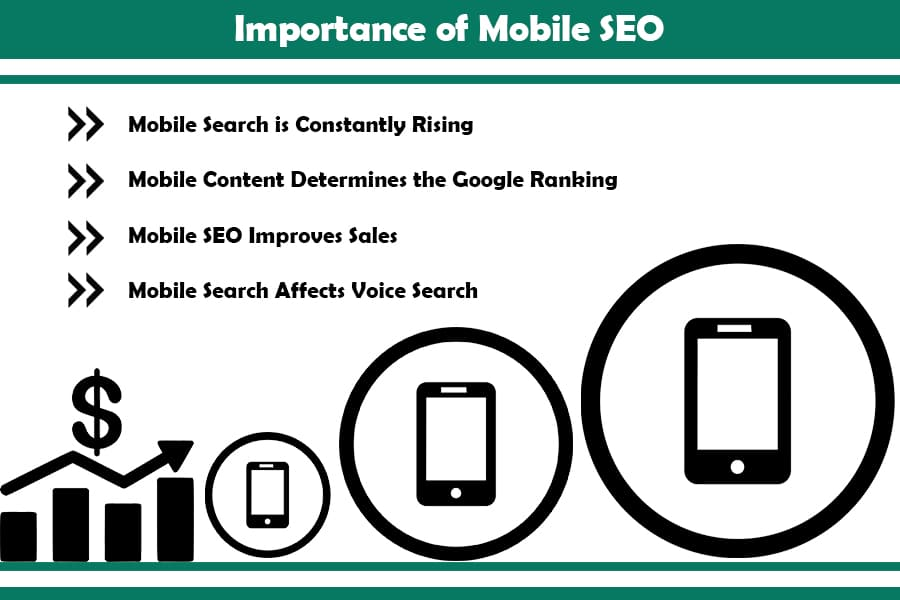
A great example of mobile-first SEO is Yelp.
Local search and user-generated content through mobile devices represent Yelp’s signature approach alongside its effective operations for mobile users. Yelp provides mobile users the ability to search for restaurants near them combined with review reading and mapping functionality through convenient button tapping.
By 2025, mobile SEO will no longer be just about resizing content for small screens; it will be about creating a seamless, responsive experience that caters to users on their most personal device: their smartphone.
10. Technical SEO Will Matter More Than Ever: The Backbone of Success
Technical SEO will dominate the digital landscape by 2025. The technical foundation of SEO success remains vital; however, content stands as the primary element pushing search engine optimization ahead. The foundation of SEO success consists of page speed advantages, site structure optimization, and URL optimization, including advanced schema markups, server response, and mobile indexing practices.
A technically optimized site will create superior user experiences, leading to higher search rankings.
Take the example of Shopify. The platform extensively focuses on performance and security features to create a favorable user environment while satisfying search engines. Businesses that base their operations on technical excellence will experience growth acceleration and superior rankings across search engines in 2025.
11. Multimedia Is the Future of SEO: Engaging the Senses
Media such as videos, audio content, and interactive visuals will replace traditional text-and-links SEO practices by 2025. Marketers should adapt their strategies to match search engines’ changing approach to multimedia content evaluation.
Visual and audio content represents growing importance as search engines adopt these elements as fundamental ranking criteria. This trend has become incredibly prominent with YouTube explainer videos and interactive infographics.
Why?
Users engage through multimedia content, surpassing their needs better than plain text. Online video content creates significantly higher rates of social platform user engagement. Search engine platforms such as Google and others now value multimedia content more in their ranking systems because users show higher engagement durations.
What can marketers do?
Create Video Content: Invest in high-quality, informative videos tailored to user needs. Platforms like YouTube can serve as a second search engine for your brand. When combined with a robust SEO Services strategy, videos can effectively target the right audience and boost your online visibility.
Optimize Images: Use descriptive file names, alt text, and compressed formats to improve load speed and search visibility.
Leverage Audio: Podcasts and audio snippets can capture a dedicated audience while serving as content assets for voice search optimization.
Interactive Elements: Infographics, quizzes, and interactive visuals will become essential for keeping users engaged.
12. Focus on Thematic Coherence: A New Era of Content Strategy
Gone are the days of creating individual, disconnected pieces of content. Future search engine optimization standards will necessitate holistic content organization, ensuring that you address various related subjects through connected material in 2025.
Search engines have strengthened their ability to detect thematic relationships between content. Your website should function like a library that joins disparate topics into one authoritative body of knowledge on specific subjects.
An excellent example is HubSpot’s blog, which covers everything from marketing strategies to sales techniques under one cohesive theme: business growth. Their website’s strong emphasis on cohesive themes has made them an essential reference point within digital marketing. Businesses will face the challenge of producing content in 2025 that unites connected subjects to form a consistent narrative that satisfies user needs and fulfills search engine requirements.
The Future of SEO: What’s Next for Search Engine Optimization?
That concludes our list of notable SEO trends for 2025.
In 2025, contextual, data-driven tactics beyond keyword stuffing and link-building will be crucial to search optimization. Search engines are more intelligent, quick, and comprehensive than ever, offering everything from voice search and entity identification to hyper-local results.
Developing a reliable source that AI systems can rely on to provide insightful, interesting responses is the true challenge—and the potential. SEO specialists may thrive in a world where discoverability manifests itself in various ways, including voice assistants, augmented reality, and search engine marketing platforms, by using structured data, monitoring performance indicators, and embracing multimedia channels.
SEO experts
move beyond basic “keyword optimization” with AI Discovery, creating knowledge frameworks and semantic links that power AI-powered products. Improving the user experience and ensuring your brand’s unique expertise shines out in a rapidly changing digital landscape is more important than losing traffic to AI summaries.2025 SEO Trends: FAQs
Will AI completely replace the human touch in SEO by 2025?
No, AI will assist with data analysis and automation, but human creativity and strategy will still be crucial for SEO success.
How will voice search impact SEO strategies in 2025?
Voice search will push SEO towards natural language and long-tail keywords, focusing on conversational, mobile-friendly content.
Is it still worth investing in backlines in 2025?
Yes, but the emphasis will shift to high-quality, authoritative backlines rather than quantity, focusing on relevance and trust.
How will user experience (UX) and core web vitals shape SEO in 2025?
UX and core web vitals will remain critical, with fast load times and mobile optimization directly influencing search rankings.
Will AI-generated content harm or help SEO in the coming years?
AI-generated content will help scale content creation but must still meet high-quality, user-focused standards to avoid penalties.
Whether you’re upgrading technology, improving performance, or rebranding your business, this checklist ensures a smooth and successful migration every step of the way. Get Your Free Checklist Now!

Ravi Makhija, the visionary Founder and CEO of WebyKing, is a seasoned digital marketing strategist and web technology expert with over a decade of experience. Under his leadership, WebyKing has evolved into a premier full service web and marketing agency, delivering innovative solutions that drive online success. Ravi’s deep understanding of the digital landscape combined with his passion for cutting-edge technologies empowers him to consistently exceed client expectations and deliver results that matter.


